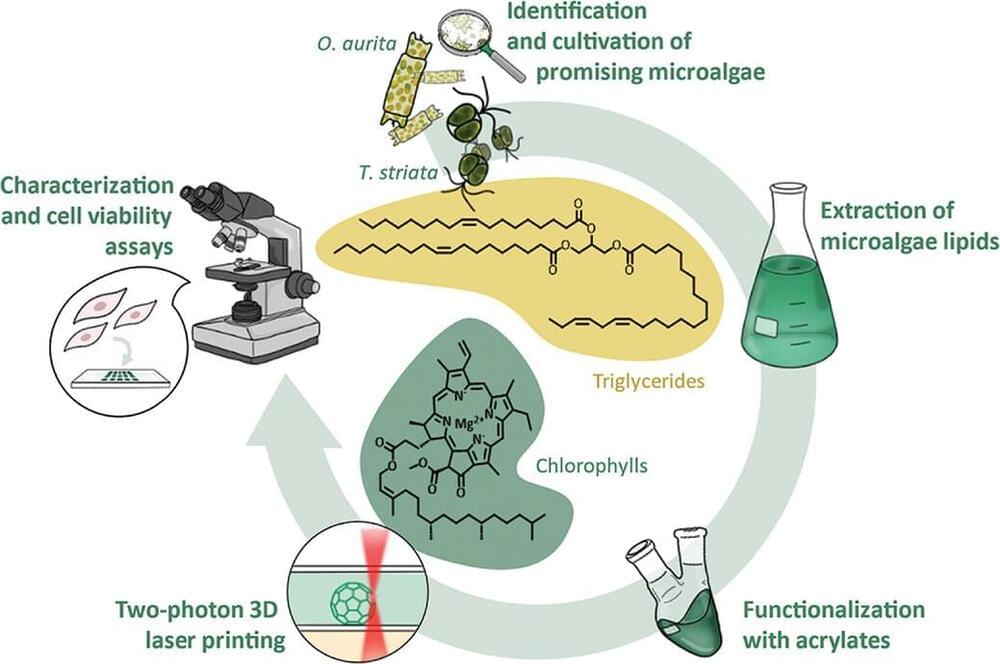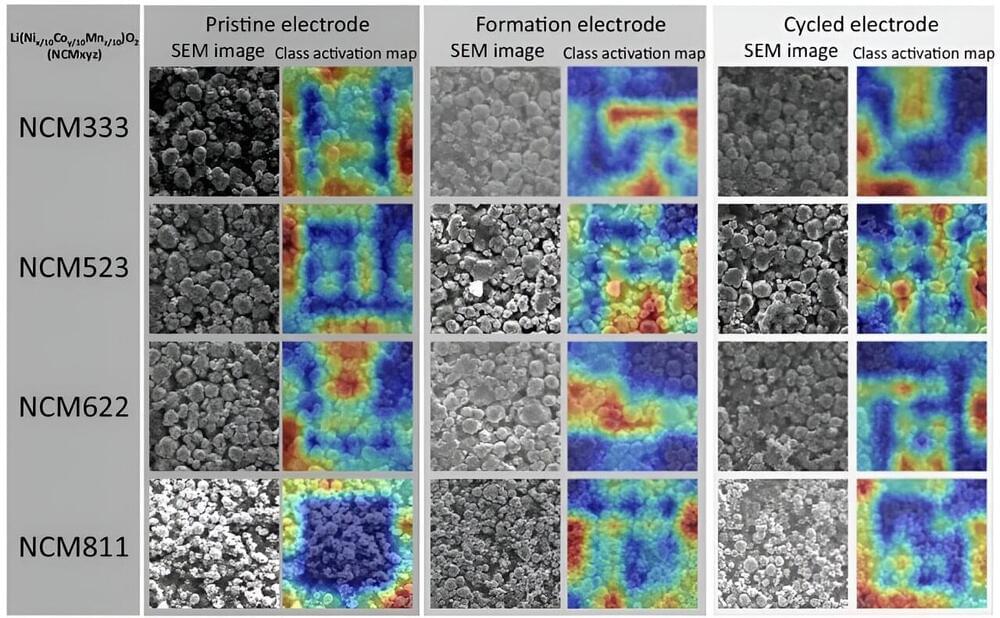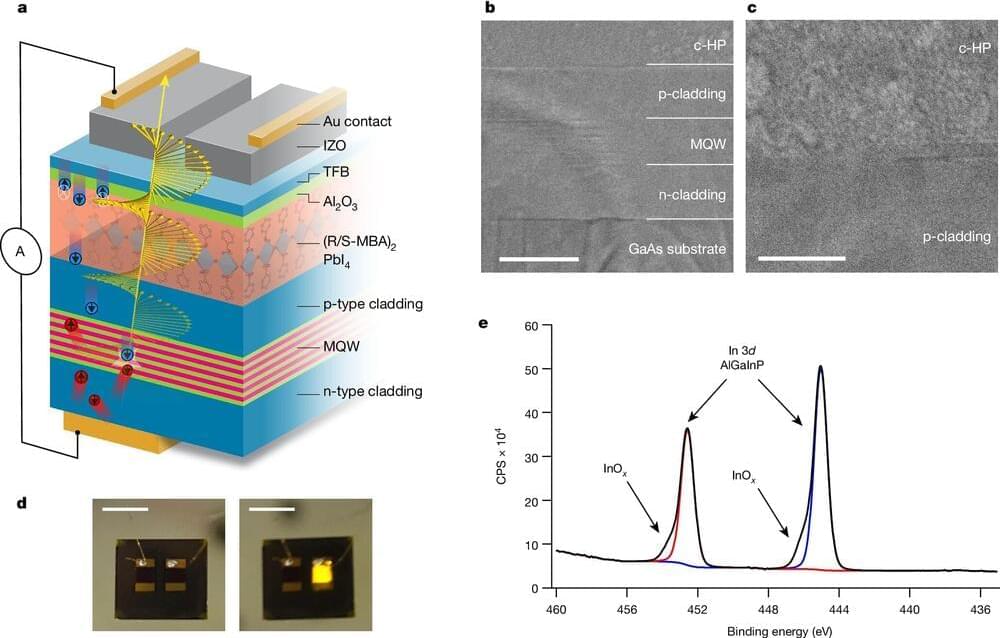I will be on tour of North America, UK & EU talking about my latest book, religion, life on earth and beyond. I will be joined on stage by a range of friends…
Get the latest international news and world events from around the world.
Sean Carroll, Daniel Dennett, & Steven Pinker: AI, Parapsychology, Panpsychism, & Physics Violations
Patreon: https://bit.ly/3v8OhY7Sean Carroll is Homewood Professor of Natural Philosophy at Johns Hopkins University and fractal faculty at the Santa Fe Insti…

An inexpensive, easy-to-use method to create solid-state nanopores
SMU and the University of Rhode Island have patented an inexpensive, easy-to-use method to create solid-state nanopores (SSNs), while also making it possible to self-clean blocked nanopores.
The technique called chemically-tuned controlled dielectric breakdown (CT-CDB) addresses two key problems that have kept solid-state nanopores – which are too tiny for the human eye to see – from being used more often to build biosensors that can measure biological and chemical reactions of a given sample.
Biosensors have widespread medical applications, enabling rapid, early and effective disease diagnosis and monitoring.
CNC Dialogues — Georg Northoff & Aldrich Chan: Space, Time, Self & Consciousness
Dr. Georg Northoff is a neuroscientist, psychiatrist, and philosopher holding doctorates in all three disciplines. In this episode, we begin by discussing the self, and consciousness. We then enter into a dialogue about what he terms the world-brain problem, in contrast to the mind-body problem. He shares what he means by the neuroecological approach, why space and time are central to understanding the mind, and how it has foundational implications to diagnosis, treatment and research. We then talk about the practical implications of his viewpoint, for laymen and professionals alike. We follow by pivoting to cover topics such as the importance of philosophy in science, his stance on free will, and a series of rapid fire bonus questions that you don’t want to miss out on. We end on a review of his journey into becoming an MD, Ph.D, his future projects and words of wisdom for anyone listening. I invite you to skip around if you find any of these topics of particular interest to you.
Website: drchancnc.com.
Instagram: @draldrichan.
Guest website: http://www.georgnorthoff.com/
Books:
Reassembling Models of Reality: https://a.co/d/9s6Qu2J
The Spontaneous Brain: https://a.co/d/ewKjT0Y
Daniel Dennett on the Evolution of the Mind, Consciousness and AI
Want to join the debate? Check out the Intelligence Squared website to hear about future live events and podcasts: http://www.intelligencesquared.com.
__________________________
How come there are conscious minds?
How do language and culture evolve?
Should we still teach children things which computers can do better?
Will our smart electronic devices rob us of our intelligence?
Will human intelligence and AI co-evolve?
These are some of the intriguing questions that Daniel Dennett, one of the most influential and provocative thinkers of modern times, sought to answer when he came to the Intelligence Squared stage to discuss his lifetime’s work on the evolution of the human mind. Dennett’s cross-disciplinary approach – encompassing neuroscience, evolutionary biology and artificial intelligence – has been widely acclaimed and helped redefine the role of the philosopher for our age.
In this exclusive event, Dennett explored the major themes of his forthcoming book, ‘From Bacteria to Bach and Back’, including how our minds came into existence, how our brains work, and how ideas are culturally transmitted. He exploded many of the notions we take for granted about how we think – such as the idea of the individual – offering instead a bold new explanation of human consciousness which views it largely as a product of cultural evolution built up over millennia.
Sharing the stage with Dennett were key figures from the next generation of scientists, AI experts, philosophers and artists, with whom he will engage on what it means to be human.

Getting Ahead of Cancer: The Life-Saving Power of Cascade Genetic Testing
Advances in Care Podcast — Episode 24In today’s world, genetic testing has become increasingly accessible for more people, creating an increased opportunity…

Study employs image-recognition AI to determine battery composition and conditions
An international collaborative research team has developed an image recognition technology that can accurately determine the elemental composition and the number of charge and discharge cycles of a battery by examining only its surface morphology using AI learning.
Professor Seungbum Hong from the Korea Advanced Institute of Science and Technology (KAIST) Department of Materials Science and Engineering, in collaboration with the Electronics and Telecommunications Research Institute (ETRI) and Drexel University in the United States, has developed a method to predict the major elemental composition and charge-discharge state of NCM cathode materials with 99.6% accuracy using convolutional neural networks (CNN).
The paper is published in the journal npj Computational Materials.

Optoelectronics gain spin control from chiral perovskites and III–V semiconductors
A research effort led by scientists at the U.S. Department of Energy’s (DOE’s) National Renewable Energy Laboratory (NREL) has made advances that could enable a broader range of currently unimagined optoelectronic devices.
The researchers, whose previous innovation included incorporating a perovskite layer that allowed the creation of a new type of polarized light-emitting diode (LED) that emits spin-controlled photons at room temperature without the use of magnetic fields or ferromagnetic contacts, now have gone a step further by integrating a III-V semiconductor optoelectronic structure with a chiral halide perovskite semiconductor.
That is, they transformed an existing commercialized LED into one that also controls the spin of electrons. The results provide a pathway toward transforming modern optoelectronics, a field that relies on the control of light and encompasses LEDs, solar cells, and telecommunications lasers, among other devices.

Novel method enhances size-controlled production of luminescent quantum dots
Luminescence refers to the result of a process in which an object absorbs light at one wavelength and then re-emits it at another wavelength. Through light absorption, electrons in the ground state of the material are excited to a higher energy state. After a certain amount of time characteristic of each excited state, the electrons decay to lower energy states, including the ground state, and emit light. The phenomenon is used in a wide array of technological applications involving highly efficient and reproducible emitting devices that can easily be miniaturized.
The materials with the highest luminescence efficiency include quantum dots (QDs), currently used in high-resolution displays, LEDs, solar panels, and sensors of various kinds, such as those used for precision medical imaging. Functionalization of the surface of QDs with various types of molecules permits interaction with cellular structures or other molecules of interest for the purpose of investigating molecular-level biological processes.
QDs are semiconductor nanoparticles whose emissive characteristics are directly linked to dot size, owing to the phenomenon of quantum confinement. For this reason, monitoring and control of crystal growth during synthesis of QDs in solution permits intelligent planning of the desired luminescence.